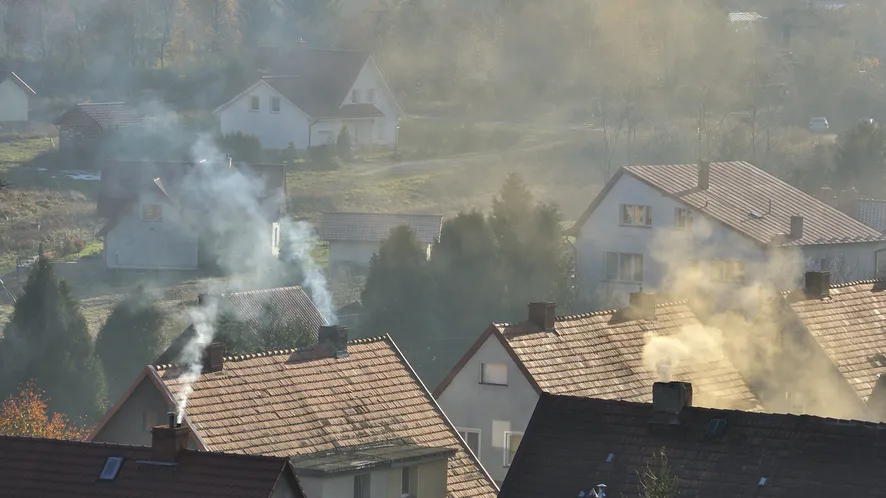A study conducted by the Polish Economic Institute (PIE) reveals that around 4% of Polish households, amounting to half a million, use waste as fuel for home stoves. Interestingly, despite the ongoing energy crisis, there has been a notable 14% decrease in the number of households opting for low-quality fuels for heating over the last five years.
The findings highlight that the prevalence of waste burning is almost double in single-family homes, reaching 7%. In a survey, 25% of households admitted to occasionally using low-quality fuels such as coal dust, wood, or biomass in the past 12 months. This marks a decrease compared to the previous five years when 29% acknowledged using such fuels.
PIE’s analysis underscores that households in rural areas or towns with fewer than 20,000 inhabitants (71%) are more likely to burn waste, with over half of them (52%) being families of four or more members.
The study also notes that 94% of households confessing to burning waste lack access to hot water from the grid, 91% to central heating, and 64% to the gas network. Additionally, 46% of waste-burning households live in homes without proper insulation, and 54% use supplementary heating sources. In the broader population, access to hot water from the grid reduces the use of low-quality fuel by 13 times, access to central heating by 11 times, and connection to the gas network by almost 3 times.
Despite the energy crisis, PIE analysts highlight a positive trend, noting a 14% decrease in the number of households declaring the use of low-quality fuels for heating over five years. Specifically, 5% of respondents declare abandoning coal dust, 4% indicate they no longer burn wood and biomass, and 2% have given up burning waste.
In summary, PIE emphasizes that although the energy crisis may have prompted some households to occasionally use low-quality fuels, there are four times as many households that have ceased using such fuels altogether.
This comprehensive study involved a sample of 1000 Polish households.
Problems of “Clean Air” progam
The “Clean Air” program in Poland is facing imminent bankruptcy, with warnings from Polish Smog Alarm and the Instrat Foundation. The program, which provides subsidies for replacing old boilers and insulating homes, is experiencing a growing financial crisis, with arrears increasing by PLN 100 million each week. The Ministry of Climate and Environment has confirmed a financial gap of over PLN 300 million, set to reach PLN 700 million by the end of February. This critical situation puts at risk the reimbursement of costs for thousands of families who invested in home insulation and heating source replacement. Despite recent pledges by Prime Minister Donald Tusk to combat smog through rapid thermal modernization, the “Clean Air” program is receiving inadequate support. Activists and experts are urgently calling for immediate government intervention and propose allocating PLN 2 billion from the RePowerEU funds to rescue the program. The disparity between governmental declarations and the current level of support for the “Clean Air” program is a cause for concern, emphasizing the need for government determination to address the crisis effectively.
